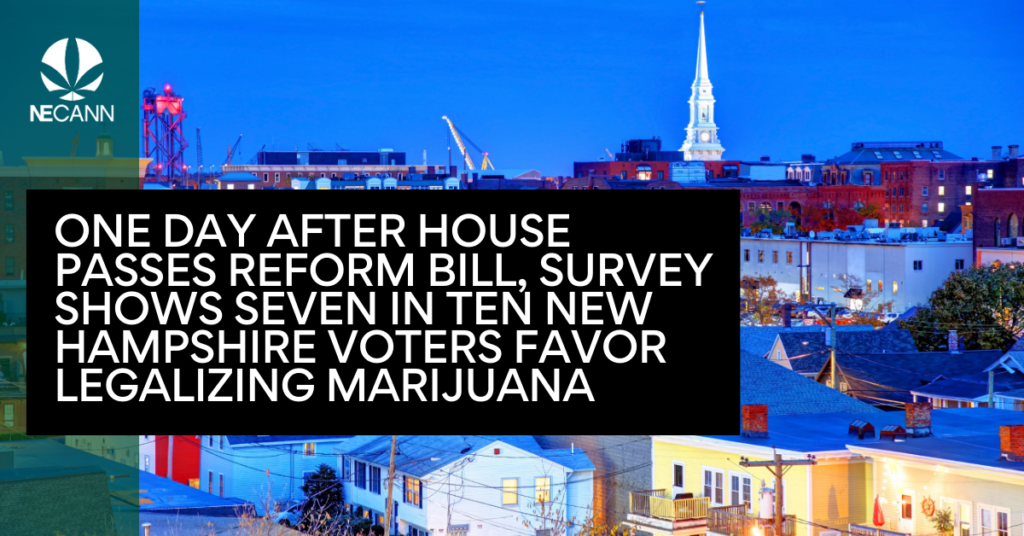A new poll that came out one day after the state House of Representatives passed a bill to make the policy change shows that most New Hampshire residents support legalizing marijuana.
Seventy-one percent of people who answered a survey that the University of New Hampshire released said they support “legalizing the possession of small amounts of marijuana for personal recreational use,” with 56 percent saying they “strongly” feel this way.
86 percent of Democrats, 62 percent of Republicans, and 53 percent of independents all agree with the plan.
The Granite State Poll says that only 18% of New Hampshire residents are against legalization.
Since the university asked the question for the first time in 2013, when only 49% said they were for legalization, support has grown a lot. Still, support for the change has dropped a few points since 2021, when 75% of people were in favor.
Between February 17 and 20, 2016, 863 people who live in New Hampshire were interviewed for the survey. The margin of error is +/-3.3 percentage points.
The House voted 234-127 in favor of a bill to legalize cannabis. This bill was backed by Majority Leader Jason Osborne (R) and Minority Leader Matthew Wilhelm (D).
The bill will then be sent to the House Ways and Means Committee. After that, it will go back to the floor and could then be sent to the Senate.
Here’s what would happen if HB 639 was changed:
Adults over the age of 21 would be able to buy, own, and give away up to 4 ounces of cannabis.
The Liquor and Cannabis Commission, as it would now be called, would be in charge of regulating the market for marijuana and giving out business licenses.
There would be no limit on how many marijuana businesses could be licensed across the whole state.
Within 18 months of the law going into effect, the state’s Department of Health and Human Services (DHHS) and the commission would need to make rules that let existing medical cannabis dispensaries apply for dual licenses so they can start serving adults.
The tax on cannabis growers would be 15% of their monthly gross income.
Eighty percent of tax money would go to an education trust fund, 10 percent would go to programs that help people who use drugs too much, 5 percent would go to localities that have at least one store open, and 5 percent (up to $1 million) would go to public agencies like police and fire departments.
Local governments could make it harder or impossible for businesses to sell marijuana in their area.
State or local government workers who use marijuana outside of work would be able to keep their jobs. A person’s professional or occupational license couldn’t be taken away or denied just because they use marijuana.



